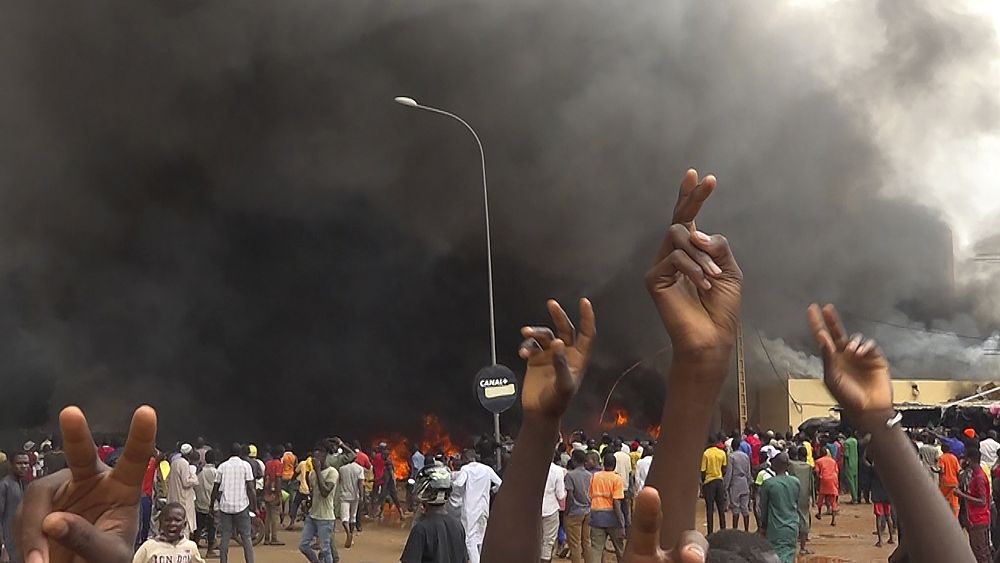
In his first act as self-pronounced leader of the country, Tchiani and his officials suspended the country’s constitution and warned against potential military intervention.
In his radio address, Tchiani said that he organised the coup with the assistance of the Presidential Guard, which he’s been commanding since 2011.
In their first act as coup leaders, they held their first meeting with government officials, suspended the country’s constitution, and warned against potential military intervention.
Tchiani explained that the reasons behind the coup have to do with the current president Mohamed Bazoum’s policy to fight regional terrorism and, in general, the overall security situation in the country.
According to him, the country needed to change course to avoid “gradual and inevitable demise”. Some experts gave a more straightforward reason: Bazoum allegedly planned to dismiss Tchiani.
Also, there were Niger citizens seen waving Russian flags, which caused suspicions of Russian (and Wagner group’s) involvement. But so far there are no confirmed signs of the mercenaries in Niger according to the United Nations.
International support for first-ever free democracy
Western leaders have strongly condemned Tchiani’s actions. The ousted president, Mohamed Bazoum, was elected just two years ago after the first-ever free, democratic, internationally recognized elections in Niger’s postcolonial history. Bazoum and his family are presumably held in their residence.
Bazoum’s last appearance was his post on social media on Thursday morning, where he called to protect the “hard-won democracy”. In particular, United States Secretary of State Antony Blinken said that Bazoum can count on the “unfailing support” of the United States.
The European Union has warned to cut its aid to Niger. In turn, the United Nations says humanitarian aid will continue despite the recent coup, although humanitarian assistance fights have been suspended because of the closed airspace in the country.
Similar situation in neighbouring countries
The Economic Community of West African States (ECOWAS) is planning an emergency meeting on Sunday in the capital of Nigeria. ECOWAS countries leaders have expressed concern about the increased number of coups in the region in recent years.
Mali and Burkina-Faso, two countries bordering Niger, and sharing the same jihadist-related problems, have experienced several coups since 2020.
So far, the situation on the ground remains relatively calm.